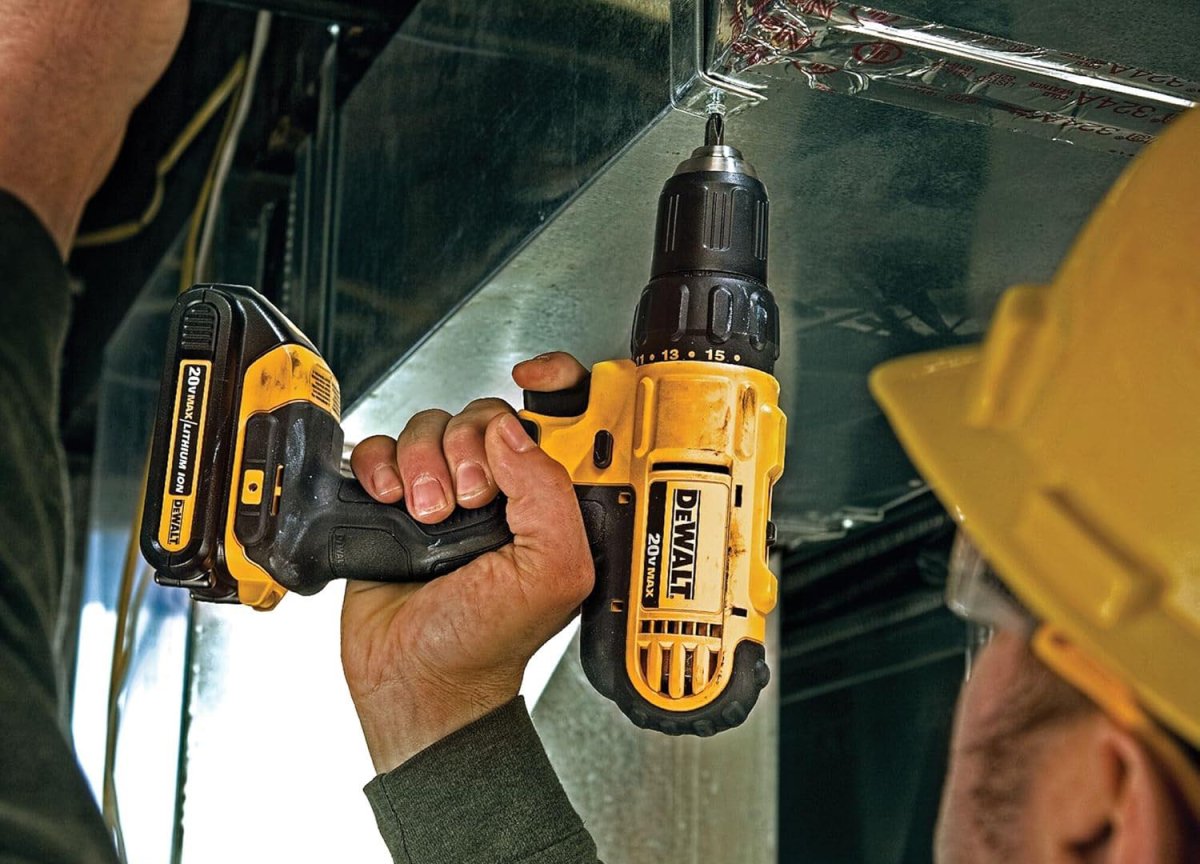
We may earn revenue from the products available on this page and participate in affiliate programs. Learn More ›
Any review of the best tool brands invariably includes DeWalt and Milwaukee at or near the top. They both offer top-notch performance, reliability, and durability. DeWalt’s yellow and Milwaukee’s red tools can be seen on countless jobsites and in the garages and sheds of those willing to invest a bit more for high-quality tools. Both brands consistently introduce new innovations to the market. They have extensive ranges encompassing corded and cordless power tools, accessories, storage, and workwear.
The DeWalt vs. Milwaukee debate has been going on for years, and now it’s our job to try and separate them. Can we finally find a winner?
How We Compared DeWalt vs. Milwaukee
Here at Bob Vila, we have tested thousands of power tools over the years, and, not surprisingly, we have gained considerable hands-on experience with both DeWalt and Milwaukee products. We also regularly check in with the companies themselves to make sure we’re up to date on new developments.
In addition to researching the backgrounds and ranges of each manufacturer, our top picks feature the closest matches we could find in terms of specification and performance for two very popular power tools. This allows you to quickly analyze some of the key Milwaukee vs. Dewalt differences.
DeWalt

Price Range: $$ to $$$$
Our Top Picks: DeWalt 20V MAX Cordless Drill/Driver Kit for $99 at Amazon or DeWalt 20V MAX 7¼-inch Cordless Circular Saw for $188.65 at Amazon.
Raymond DeWalt created DeWalt in 1924, and Black+Decker acquired it in 1960. They subsequently became Stanley Black & Decker in 2009. We recently investigated this popular tool manufacturer so we could answer a question many have asked: “Is DeWalt a good brand?” We found their tools to be well made, reliable, and often competitively priced.
DeWalt likes to appeal to both tradespeople and DIYers. In addition to extensive corded and cordless tool ranges, the company offers everything from simple screwdrivers and drill bits to workwear and safety gear. Like most power tool companies, DeWalt sources some of its products abroad. However, it has a strong manufacturing presence in the U.S. with facilities in seven states, and it employs approximately 13,000 people.
What We Like
- One of the most popular brands for high-quality power tools
- An extensive product range
- U.S.-based parent company; extensive U.S. manufacturing and employment
What We Don’t Like
- Prices restrict them to trade or serious DIYers
- 3-year warranty on power tools is less than Milwaukee
Shop DeWalt products at:
Milwaukee

Price Range: $$$ to $$$$
Our Top Picks: Milwaukee M18 Cordless Drill/Driver Kit for $199 at The Home Depot or Milwaukee M18 Fuel Cordless 7¼-Inch Circular Saw for $199 at The Home Depot.
In what seems a remarkable coincidence, Milwaukee also started trading in 1924. It was Milwaukee that introduced the legendary Sawzall that so many others now copy. In 2005, they became part of Techtronic Industries (generally known as TTi), which focused the brand on products for the mechanical, electrical, and plumbing trades.
Like DeWalt, Milwaukee has bolstered its corded and cordless tool ranges with hand tools, accessories, and workwear. Their products are generally perceived as being at the same level as their rival in terms of quality and durability. Milwaukee tools have always been manufactured in their home state of Illinois, but they now also have operations in Wisconsin and Mississippi with a total of around 5,500 employees. Additionally, Milwaukee has five facilities abroad.
What We Like
- Regularly top reviews of power tools for professional users
- 5-year power tool warranty reflects the brand’s confidence in their products
- Significant investments in U.S. manufacturing and distribution facilities
What We Don’t Like
- Premium prices, even among high-end competitors
- The brand makes little effort to appeal to DIYers
Shop Milwaukee products at:
DeWalt Usually Has the Edge on Price
Prices from both brands tend to reflect the high quality of the tools offered. However, in direct comparisons, DeWalt products usually cost less. When making our top picks, we compared DeWalt vs. Milwaukee drill/drivers. Both offer two 2-amp-hour batteries, a charger, and a bag, yet the DeWalt is $100 less. There is one significant technical difference: The Milwaukee drill is brushless and, as a result, virtually maintenance-free. This could well impact the choice of professionals, but are DIYers likely to care? With that big of a savings, we doubt it.
The pricing of the circular saws we chose is closer and more reflective of the average, but the DeWalt model is still cheaper. This is not always the case, so it’s important to check. When we compare DeWalt vs. Milwaukee impact drivers, the prices are almost identical. It’s also true that sometimes the situation is reversed, but this doesn’t happen often.
This reflects DeWalt’s broad appeal, whereas Milwaukee is generally seen as the tradesperson’s choice. This was underlined when we looked at the best DIY power tools. The DeWalt drill/driver was our first pick, and Milwaukee didn’t get a mention.
Milwaukee Leads the Race for Absolute Power
Maximum power on cordless tools is all about voltage. When we compare Milwaukee tools vs. DeWalt, we see both have 12-volt (V) and 20V ranges. Although Milwaukee’s tools are called M18 (for 18V), they are the same. You can find an explanation in our buyer’s guide for the Best Cordless Drills.
DeWalt upped the stakes by introducing some heavy-duty 60V tools, and conveniently, the clever 20/60V FlexVolt batteries can also be used on their 20V tools. Then Milwaukee went one better with the MX Fuel range running off their impressive 72V power packs. These provide outstanding performance and offer remarkably rapid charging for their size.
Cordless power tool battery technology changes rapidly, and it may not be long before DeWalt reacts. For now, Milwaukee leads the way.
20V Ranges Are Close, But Milwaukee’s 12V Range Wins
When you compare DeWalt 20V vs. Milwaukee M18 ranges, you’ll see many similarities in specification and performance, and there is a choice of around 200 different models from each brand. It’s a very different story when you look at the 12V ranges.
We first noticed this when we put together an article on the best DeWalt tools at The Home Depot. It doesn’t feature any 12V models. For balance, we checked at Amazon, where we found just a few options. By contrast, the Milwaukee M12 range provides a staggering 150 different tools.
It’s important to point out that these are not underpowered alternatives, or designed purely for DIY users. Some are more compact, lightweight versions of their M18 counterparts. Others are trade-specific tools like pipe cutters, riveters, and drain snakes. It’s a market DeWalt seems to have largely ignored.
Our Verdict
We knew resolving the DeWalt vs. Milwaukee debate would be a tough ask. Frankly, it’s hard to criticize the tools of either brand. DeWalt’s competitive pricing makes them a favorite with serious DIYers whereas Milwaukee focuses on trade buyers. We were surprised to find such a disparity when we compared 12V Milwaukee power tools vs. DeWalt alternatives.
So how do you choose? It might make a difference if you’ve already invested in batteries and chargers for one rather than the other. If not, compare specifications and prices, and take your pick. Whatever you decide, we doubt you’ll be disappointed.
